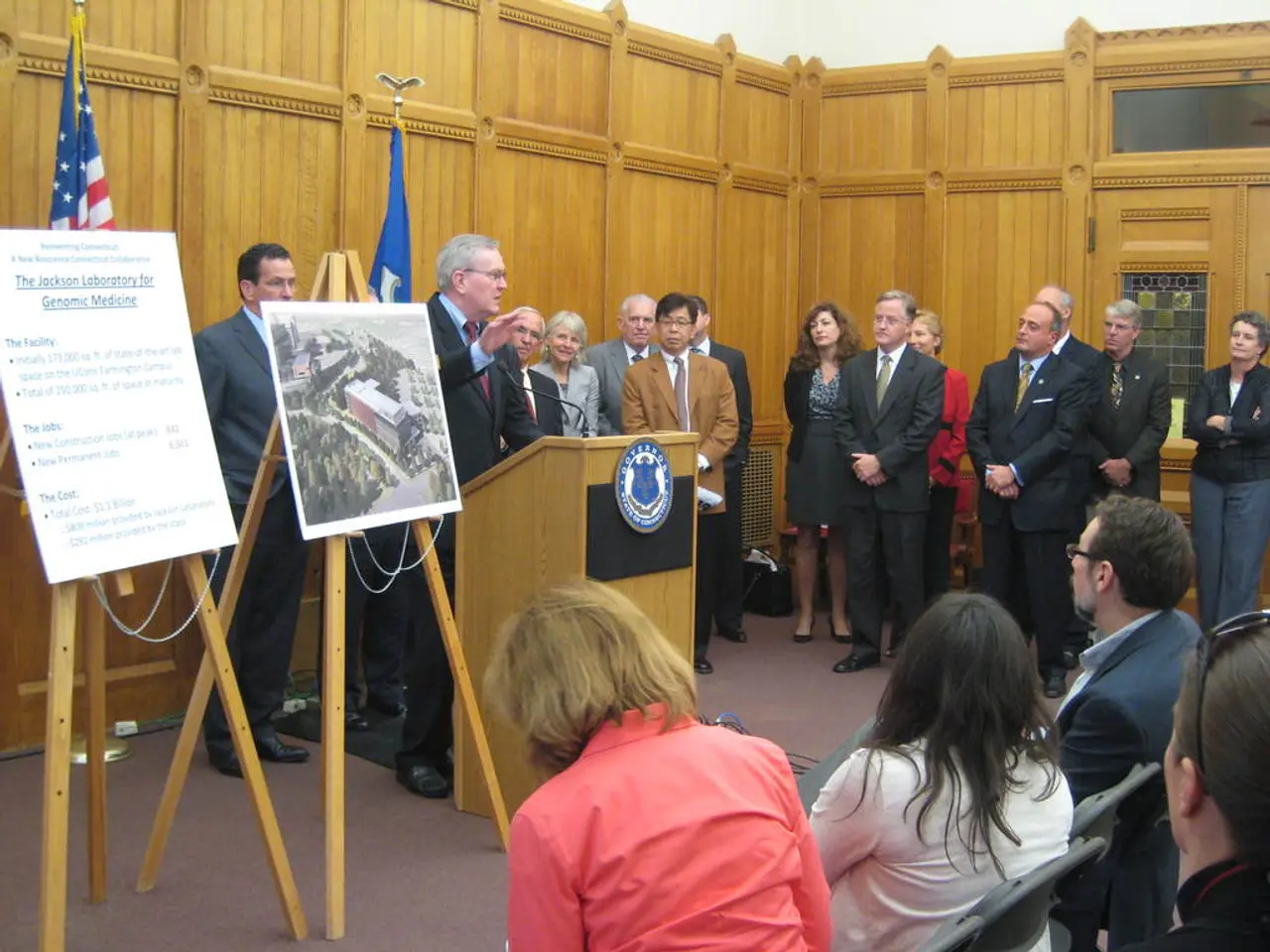Online Political Reputation Shaping: A Historical Overview from Yesteryears to Now
In the early days of the internet, political reputation management was a relatively new concept, with traditional media dominating the discourse. However, as the internet evolved and social media platforms emerged, online reputation management became a crucial aspect of political discourse.
The 2000s marked the beginning of the social media era, with platforms like Facebook, Twitter (now X), and others revolutionising the way politicians engage with the public. This interactive approach allowed for real-time feedback and response to public issues, fostering a sense of connection and immediacy.
Politicians also began to leverage the influence of online opinion leaders, often referred to as "Online Political Citizens." These individuals are more likely to be influential among their peers, making them key targets for political messaging. Political communication evolved to emphasise emotionality, using storytelling and personal narratives to connect emotionally with voters.
In the digital age, maintaining a positive online image is essential for politicians. Strategies include consistent messaging across platforms, crisis management, regular engagement with constituents, social media monitoring, and reputation repair. Swift and genuine apologies combined with corrective actions can help repair reputational damage.
However, online reputation management faces challenges such as fake news and misinformation, and dark PR tactics. Entities use underhanded methods to manipulate public opinion and damage opponents' reputations. Politicians must stay vigilant and proactive in defending their online image.
Political consultants use reputation audits to assess current sentiment, identify vulnerabilities, analyse media exposure, and develop action plans for improving or defending reputations. Political campaigns handle online crises effectively by preparing rapid-response protocols, designating spokespersons, swiftly correcting false narratives, and issuing verified statements across official channels.
The future of online political reputation management includes deeper AI integration, predictive reputation modelling, blockchain-backed authenticity verification, and personalised voter interaction strategies. The rise of the digital army in the 21st century, consisting of teams of professionals managing a positive online presence for politicians and political campaigns, is a testament to the importance of online reputation management.
Tools like Google Alerts, Brand24, Talkwalker, and social listening platforms help detect mentions, sentiment shifts, and potential crises early. Politicians today face risks such as viral misinformation, deepfakes, cancel culture, hacked social accounts, and coordinated smear campaigns. To counter these risks, politicians are actively seeking to improve their social media presence, hiring teams of professionals to manage their accounts and engage with followers.
Online political crisis management is essential to mitigate the negative impact of Twitterstorms and other online crises. AI helps analyse public sentiment, flag risky narratives, recommend crisis responses, and draft proactive messaging strategies. Negative search results, outdated controversies, or misleading articles appearing at the top can damage public perception and influence voter sentiment.
Online reputation management has changed the nature of political discourse, allowing politicians to tailor messages to specific demographics and use data to shape campaign strategies. Politicians manage their reputation across multiple platforms by aligning messaging, monitoring feedback loops, and using centralised digital teams or agencies to ensure consistency and responsiveness.
Reverse SEO involves reducing negative content in search engine results by promoting positive, high-authority content that outranks the undesirable links. Television, print, and radio, which once shaped public perception through editorials, debates, and press conferences, allowed political figures limited control over narratives. In contrast, online reputation management offers a level of control that was previously unattainable.
In conclusion, online political reputation management has become a critical aspect of political discourse, offering politicians a level of control over their image that was previously unattainable. As technology continues to evolve, we can expect to see further innovations in this field, shaping the digital landscape of political communication.
- Social media platforms, such as Facebook and Twitter, revolutionized the way politicians engage with the public in the 2000s, fostering real-time feedback and connection.
- Online opinion leaders, often referred to as "Online Political Citizens," have become key targets for political messaging due to their influence among their peers.
- Maintaining a positive online image is essential for politicians in the digital age, with strategies including consistent messaging, crisis management, and regular engagement with constituents.
- Entities use underhanded methods like fake news and dark PR tactics to manipulate public opinion and damage opponents' reputations.
- Political consultants use reputation audits to assess sentiment, vulnerabilities, and exposure in order to improve or defend reputations.
- Online political crisis management is essential to mitigate the negative impact of viral misinformation, deepfakes, and coordinated smear campaigns.
- Online reputation management has changed the nature of political discourse, allowing politicians to tailor messages, use data to shape campaign strategies, and take control over their narratives.




